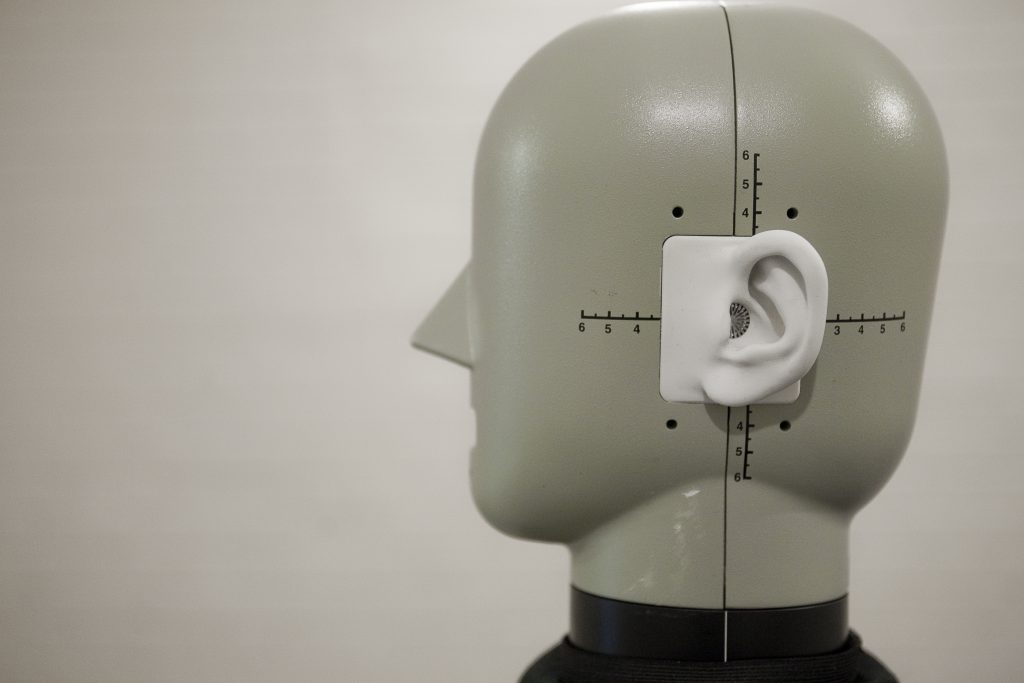Hybrid: Newton 241 or Microsoft Teams: Join the meeting now; Meeting ID: 393 480 335 939 7; Passcode: nq3sf7aB
1. Interviews with Singers with Hearing Loss; understanding barriers to participation and open questions for further research.
Rebecca Vos¹, Trevor Cox¹, Alinka Greasley²
¹ University of Salford, ² University of Leeds
This study aimed to understand the issues faced by non-professional singers with hearing loss, when singing in ensembles such as choirs.
12 Non-professional Singers were recruited for this study, aged from 36-80 years (mean 67.9 yrs). Most had mild-moderate bilateral hearing loss. Choral experience varied from 2-70 years (mean 44.8 yrs). All were either currently singing in choirs or other groups or had stopped recently (in the last 3 years).
Subjects completed a questionnaire and semi-structured interviews on their experience of singing individually and in different ensemble groups. Audio was recorded, transcribed and anonymised, and qualitative thematic analysis performed using NVivo. This work will collate and present the key findings of this research; the struggles and barriers to participation faced by the singers, and technical difficulties they faced, and their behavioural and emotional response to these.
Several key themes were identified, including age and health, the role of others (family, audiologist, other musicians), musical problems (including perception of pitch, timbre, spatialisation and loudness) own voice perception, and practical barriers to participation such as travel and other health concerns. Emotional response and satisfaction with their hearing aids (for those that had them) was highly variable, with some subjects perfectly content with their musical activities, and some very upset.
Some suggestions of open questions and important avenues for further research were identified, including possibilities for technological aids/solutions, education for users on how to modify their behaviour (including using hearing aids more effectively, and engaging with their audiologist), and improved guidance for singers and conductors.
2. Everyday music listening, emotion regulation, and mental health: a scoping review to determine how adults with hearing loss are represented within research.
Adelaide Beckwith, University of Salford
Background: 1 in 3 adults in the UK are deaf, have hearing loss (HL), or tinnitus. HL in adults is associated with poor mental health (MH) including depression, loneliness, and poor quality of life. Engaging with music is known to have a positive impact on MH and wellbeing in a range of contexts. Everyday music listening (EML) is an accessible way of using music to self-regulate mood and MH. However, the current literature suggests that people with HL have often been excluded from studies relating to EML and MH.
Aims: To identify, explore, and map existing research where adults with HL have been included and / or excluded from participation in studies. It was hypothesised that explicit and implicit exclusions would be evidenced, and that hearing health would not be recorded.
Methods: A preregistered scoping review following PRISMA guidelines searched 7 databases for eligible studies. In addition, targeted searches of grey literature and citation searching was undertaken. 28 studies were eligible for inclusion.
Results: Of the included studies, 8 concerned clinical/patient populations; 15 non-clinical populations – the remaining 5 studies were conducted during the COVID-19 pandemic. Most studies (n = 18, 64%) were quantitative. There were 22,531 participants, with a weighted mean age of 36.21 years. Female participation, weighted by sample size, was 55.66%. Explicit (n = 4) and implicit (n = 5) exclusion of adults with HL was evidenced. 6 studies specifically recruited older adults (60+). Hearing health was only reported in 2 studies.
Conclusion & Implications: The results will be used to design a survey to gather the views and experiences of people with HL on how they use and engage with music. This will help shape recommendations around the therapeutic use of EML, and future studies on how this can be tailored specifically for people with HL.
